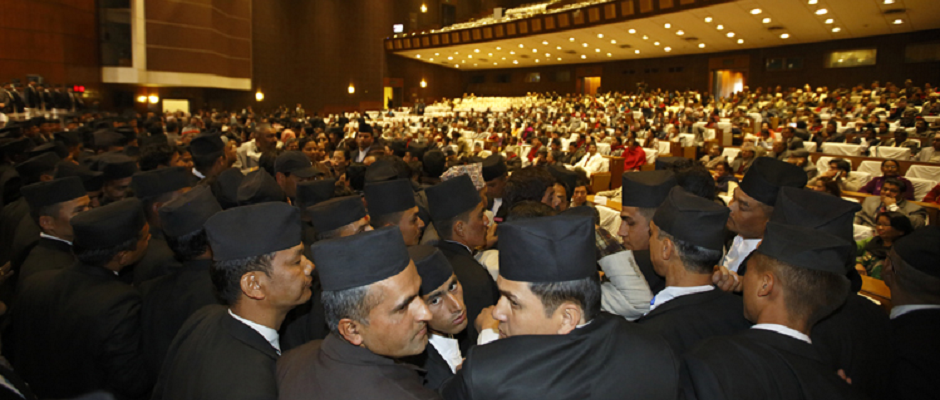
Local governments can be an important mechanism to promote inclusive governance and equitable development. However, local government power can also be wielded as a mechanism for political, economic, or racial exclusion.
Although local governments in the United States play an important and largely positive role in America’s intergovernmental system, local governments in the U.S. historically played an important role in promoting and enforcing racial segregation: through land use regulation, zoning, and redevelopment planning, local governments in the U.S. promoted and enforced segregation along race and class lines. Even though local government support and enforcement of discriminatory housing policies ended decades ago, the effects of these policies can still be seen in urban residential location patterns today.
Similarly, while federal voting rights legislation introduced in the 1960s was supposed to prevent race-based politicking, local governments continue to have considerable scope to favor certain residents and candidates over others in the local political process. In fact, compared to other countries, local governments in the U.S. tend to have a greater ability to put their thumb on the local political scale to make sure that the local majority (or representatives favored by the local elite) do well in local elections. Evidence confirms that local political systems are (still) often stacked against non-white communities, and that nonwhite people are drastically underrepresented in local government.
Unequal political representation at the local level can have real impacts on the lives of local residents. For instance, unless residents are evenly and fairly represented, a municipal council or town board may vote to close a library or public park in a low-income or minority (nonwhite) neighborhood or ward, while providing these public amenities (or higher-quality amenities) in neighborhoods that are wealthier and/or have a greater proportion of White households.
A pair of recent research studies considered whether the presence of underrepresented racial/ethnic groups in local councils or local legislative bodies differentially impacts outcomes for members of those groups. In other words, does racial/ethnic representation matter in terms of achieving different outcomes for minorities? The answer from this set of studies appears to be pretty clear: yes, racial or ethnic political representation matters.
Racial and Ethnic Representation in Local Government: Impact on housing prices in California
A recent study published in the American Economic Journal: Economic Policy studied close elections between White and non-White candidates for California city council and the corresponding impact on housing values, a summary statistic for neighborhood investment. In other words, the study looked at whether non-White elected officials are more effective at directing resources for public services and infrastructure investments to majority non-White neighborhoods? If this is the case, when all else is held constant, we would expect housing prices to be higher in places with non-White elected officials.
Indeed, the study finds that electing non-White rather than White candidates generates differential home value gains in majority non-White neighborhoods. This result was not caused by other factors, such as correlations between candidate race and political affiliation, or by neighborhood racial composition and income. The result suggests that greater racial or ethnic political representation can reduce racial disparities by making sure that the interests of residents in majority non-White neighborhoods are better represented, presumably leading to better local services, and–as a result–higher home values. The results were shown to strengthen with increased city-level segregation and council member pivotality.
Racial Representation in Local Government and Racial Disparities in Policing in North Carolina
A separate study, recently posted on the Social Science Research Network, draws on statewide data from North Carolina to examine the impacts of local racial and ethnic representation in city councils on policing. Specifically, this study focuses on outcomes of traffic stops; for instance, whether a driver receives a warning or a citation after being stopped by local police.
As a first finding, the researchers find considerable racial and ethnic disparities in outcomes: specifically, they find large Black-white and Latino-white disparities in the likelihood of consequence (arrest or citation) after a traffic stop.
The researchers then use an empirical approach known as ‘difference-in-differences design’ to analyze the impact of local political representation on politicking outcomes, by focusing on changes in policing outcomes following (narrow) elections of nonwhite (rather than white) councilmembers.
The analysis finds that increased nonwhite council representation significantly reduces Black-white gaps in stops and actions taken after a stop. The magnitude of the reduction is similar with and without officer fixed effects, suggesting that results are largely driven by individual officer-level behavior change rather than a change in the composition of the police force.
Some take-away points
Some important take-away points from these studies include:
- While giving greater power to local governments has the potential for promoting more inclusive governance, decentralized (devolved) power can also negatively impact local residents, especially when used by a majority group to the disadvantage of an under-represented minority group.
- The impact of decentralization (i.e., the ability of a devolved system to make sure that local governments achieve outcomes that are beneficial for their residents) depends on the quality of local political systems, including whether the interests of residents—majority as well as minority residents—are effectively represented.
- In order for the potential positive impact of decentralization and local representation to be felt, elected local political leaders ought to have control over local priorities, local administration, and the local delivery of services, without interference from higher-level governments. In the U.S., local governments are highly devolved entities; they are in charge of local infrastructure as well as local police services.
- Local political representation matters. When ethnic or racial minorities are systematically underrepresented in local political decision-making, this is not just a local political matter: under-representation can actually result in measurable inequities in economic or public service outcomes for residents.
Read the background studies cited in this article:
Beach, Brian, Daniel B. Jones, Tate Twinam, and Randall Walsh. 2024. “Racial and Ethnic Representation in Local Government.” American Economic Journal: Economic Policy, 16 (2): 1-36. (An earlier version of the study is accessible for free from NBER).
and
Wang, Xiaohong and Jones, Daniel and Zeng, Jiangnan, Racial Representation in Local Government and Racial Disparities in Policing. Available at SSRN: https://ssrn.com/abstract=4816595
Note: This blog was written by Jamie Boex, Executive Director of the Local Public Sector Alliance. The opinions and conclusions reflect those of the author, and should not be attributed to the Local Public Sector Alliance.



